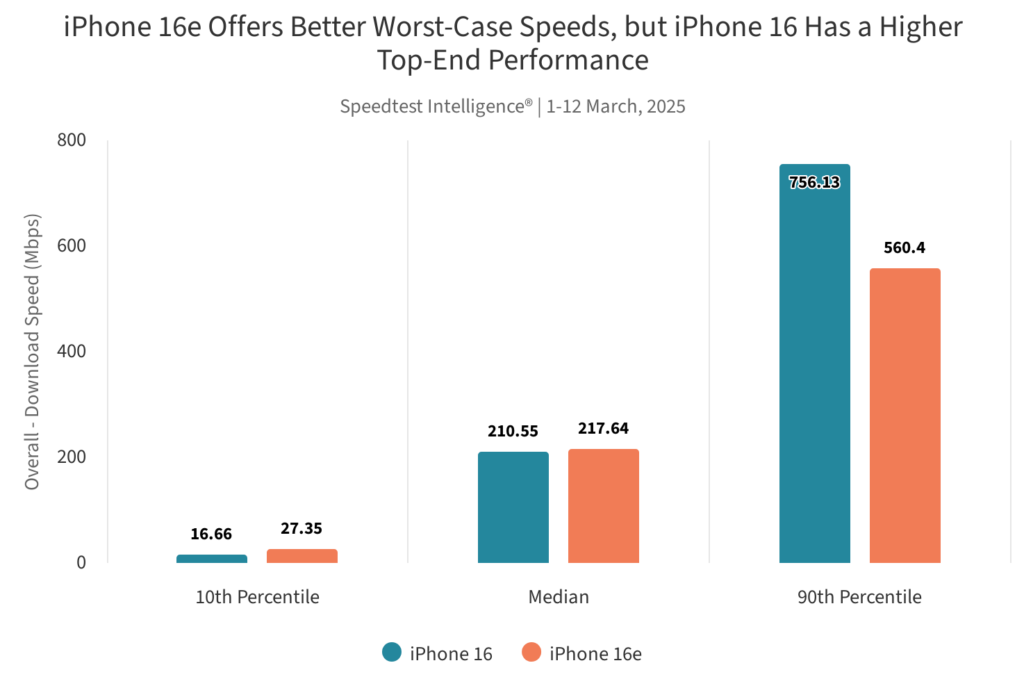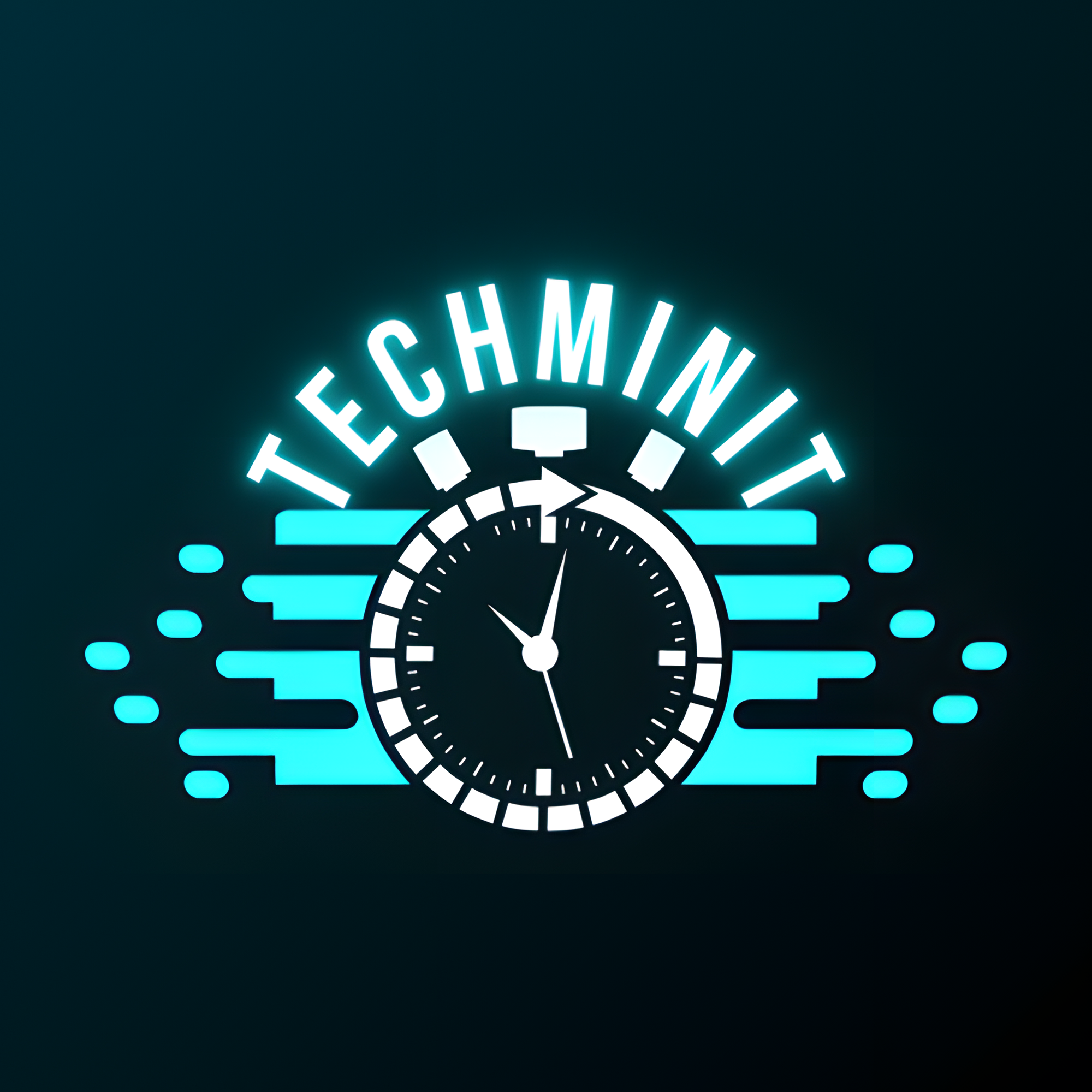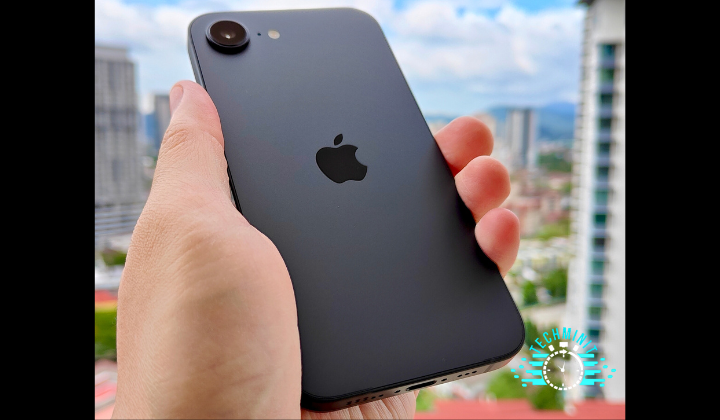Apple’s first in-house modem, the C1, is already giving Qualcomm’s 5G modem a run for its money—at least in some areas.
According to a report from Ookla (the folks behind Speedtest), the new iPhone 16e, which packs the Apple C1 modem, was put head-to-head with the iPhone 16, which uses Qualcomm’s Snapdragon X71 modem.
Here’s the scoop: Qualcomm’s modem still wins when it comes to peak speeds, but the C1 shines in slower network conditions. Ookla tested both devices across the big three US carriers—AT&T, T-Mobile, and Verizon—and the results are pretty interesting.
When it comes to slower network speeds—basically the bottom 10% of all tests—the iPhone 16e pulled ahead of the 16, hitting 27.35Mbps compared to 16.66Mbps. It even has a slight edge in the average (median) speeds.

But when you look at the top 10% of tests, where speeds are blazing fast, that’s where the Qualcomm-powered iPhone 16 takes the lead. So, the iPhone 16e is better in tougher conditions, while the iPhone 16 shines when the network’s at its best.
Overall, it’s a solid debut for Apple’s modem, and they’re even claiming it’s the most power-efficient 5G modem ever used in an iPhone.
Now, keep in mind these tests were done in the US, so things might play out differently in Malaysia. But speaking from my own experience with the iPhone 16e, it’s been holding onto 5G signals like a champ.
I haven’t had the chance to compare it directly with the iPhone 16, but it’s performing as well as my OnePlus 10T in terms of signal reliability.
One curious detail: At the end of the report, Ookla notes that the iPhone 16 Pro Max, which also uses the X71 modem, still beats the iPhone 16e in “most performance metrics.”
If you’re curious to dive deeper into the data, you can check out the full report on Ookla’s website.

